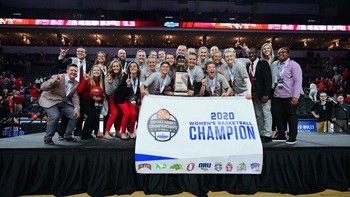USDs scale up of Reading Recovery receives good news for struggling readers and their schools
A recent study concerning Reading Recovery’s effectiveness, this one funded by The Ohio State University’s i3 scale up grant and conducted completely independently, has been added to the What Works Clearinghouse (WWC). The independent research, conducted on the nationwide scale-up of Reading Recovery by the Consortium for Policy Research in Education (CPRE), was the first in a three-part series to present results of the 5-year $45.6 million grant awarded by the U.S. Department of Education’s Investing in Innovation (i3) Fund. The study met the WWC’s group design standards “without reservation,” which is the highest design rating that the WWC assesses.
“We know that the teachers and administrators have seen remarkable changes in student learning over Reading Recovery’s short-term intervention. We also know that today’s educators increasingly rely on strong experimental research to guide decision-making,” said Dr. Garreth Zalud, university trainer at the University of South Dakota. “The recent WWC review confirms Reading Recovery’s positive impact on student learning.”
According to Zalud, the study’s authors found, and the WWC confirmed, that Reading Recovery had a significant impact on general reading achievement of struggling readers in first grade.” WWC also confirmed positive impacts on two sub-tests, general reading achievement and reading comprehension.
Across the U.S., a total of 628 schools participated in a scale-up of Reading Recovery® in the second year of the grant. Of those, 209 were randomly selected to participate in the randomized controlled trial in the first year of the study.
“The University of South Dakota is proud to be part of this large, independent research study on Reading Recovery," Zalud added. "We would also like to recognize the 112 schools and 38 districts that are part of our Reading Recovery network in South Dakota, Minnesota, North Dakota, Nebraska and Wyoming that have participated in the i3 grant.”
Although all U.S. schools are eligible for professional development funding provided by the i3 grant, particular priority was given to very low-performing schools, schools in rural areas, and schools with high populations of English Language learners.
Download the WWC Review of the Report “Evaluation of the i3 Scale-up of Reading Recovery Year One Report, 2011-2012” http://ies.ed.gov/ncee/wwc/SingleStudyReview.aspx?sid=10110.
Download the WWC 2013 Report on Reading Recovery Research http://readingrecovery.org/images/pdfs/Reading_Recovery/Research_and_Evaluation/reading_recovery_wwc_update_071613.pdf.
A photo of Zalud is also available for download at www.usd.edu/press/news/images/releases/Gary_Zalud.jpg.


